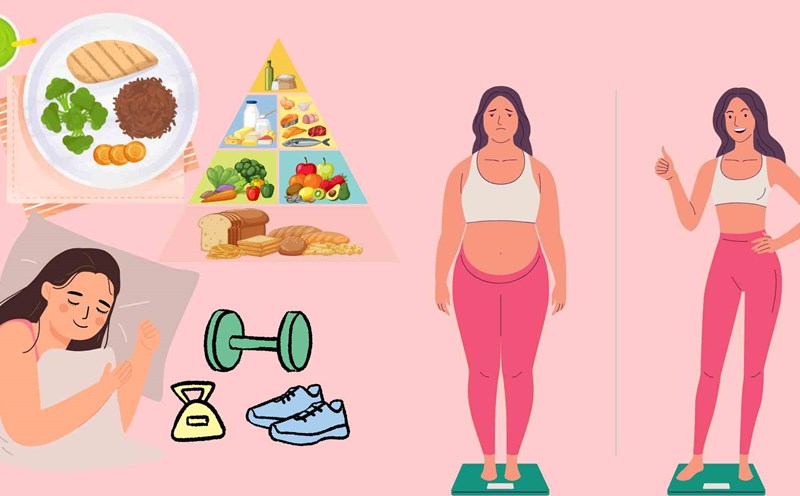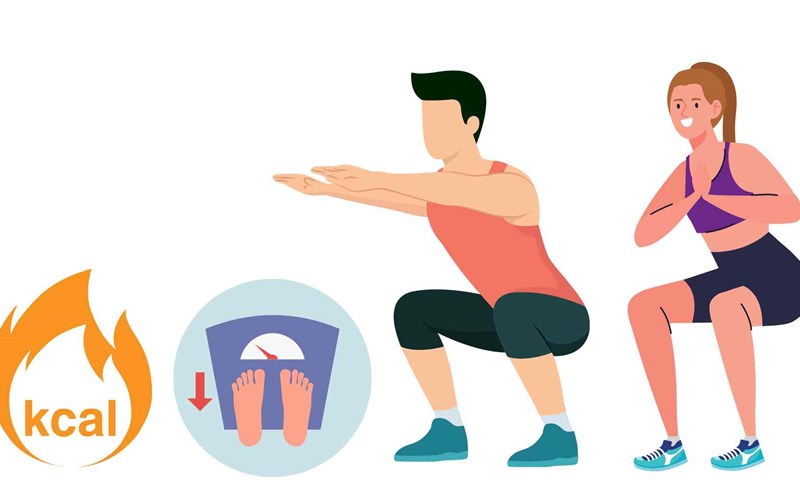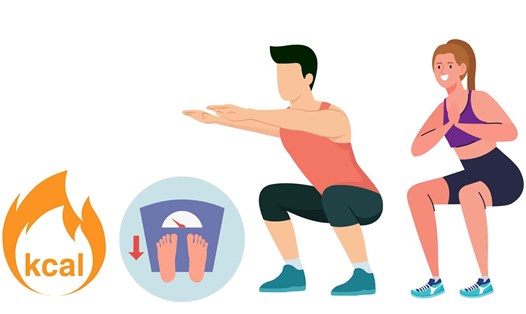Visceral fat is the deep layer of fat that accumulates around the organs in the abdominal cavity, considered the most harmful type of fat for health.
Unlike subcutaneous fat, visceral fat can cause metabolic disorders, inflammation, and increase the risk of diabetes and heart disease.
Women are often less likely to have visceral fat than men, but after menopause, this fat layer is likely to increase. The good news is that visceral fat responds well to diet and exercise, more easily broken down than hip and thigh fat.
Causes of visceral fat
Visceral fat accumulates due to many factors such as a diet high in processed foods, sugary drinks, unhealthy fats; sedentary lifestyle; genetics; stress, poor sleep and hormonal changes.
Men accumulate visceral fat faster than women, so lifestyle adjustment is key to preventing risks.
5 signs you are reducing visceral fat
Reduced waist
Reduced waist circumference is the most noticeable sign. Men below 102 cm and women below 88 cm often show that the amount of visceral fat has decreased.
This change is not always reflected in weight but reflects better metabolic health.
Increased energy
Visceral fat causes chronic inflammation, hormonal imbalance, leading to fatigue. When this fat layer is reduced, the body operates more effectively, energy increases, and daily activities become easier.
Improve blood sugar control
Visceral fat is closely linked to insulin resistance, increasing the risk of type 2 diabetes. Reducing visceral fat helps control blood sugar better, limiting sudden increases in blood sugar.
Reduces inflammation and joint discomfort
systemic inflammation caused by visceral fat can cause pain and stiffness. When fat loss, inflammation decreases, joints become more flexible, the body is gentle, easy to move.
Improved overall health
Reducing visceral fat not only changes your figure but also reduces the risk of heart disease and diabetes, balances hormones, improves metabolic function and helps the body stay vibrant.
Following the above signs helps you know that you are on the right track in the journey to reduce visceral fat, thereby protecting your long-term health.
(The article is for reference only, not a replacement for professional medical advice. Always consult your doctor if you have health questions).











